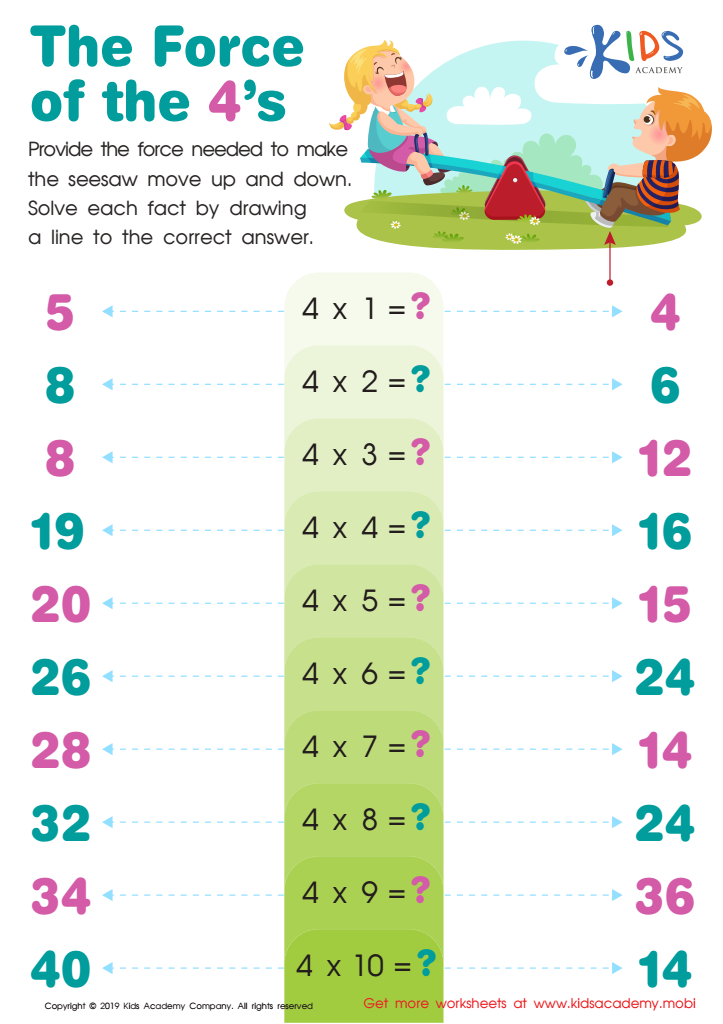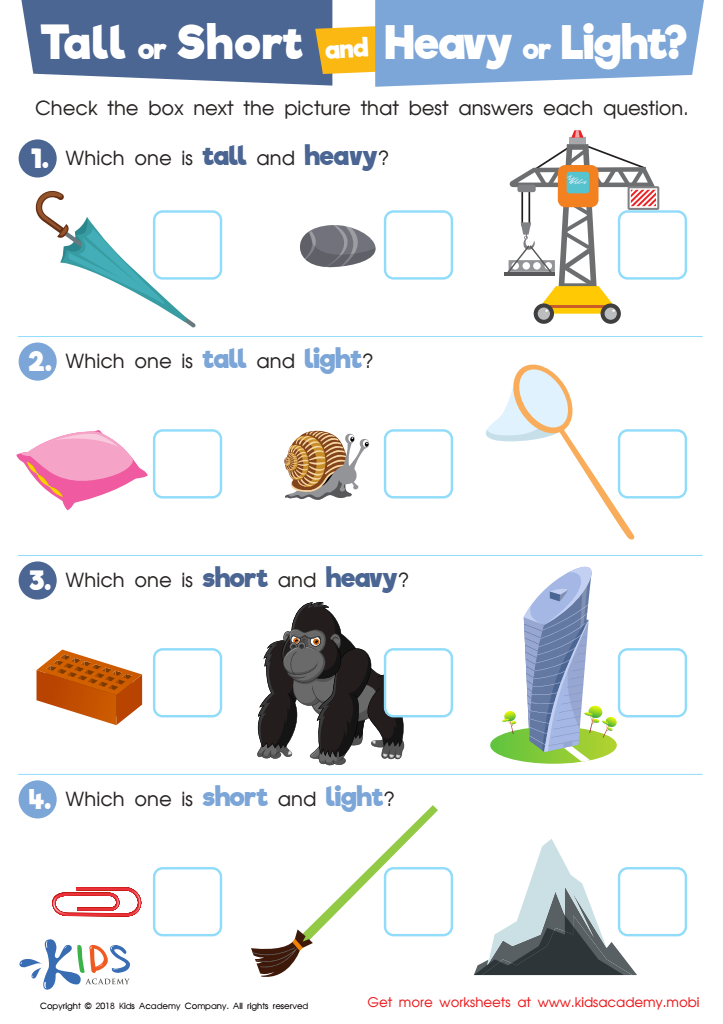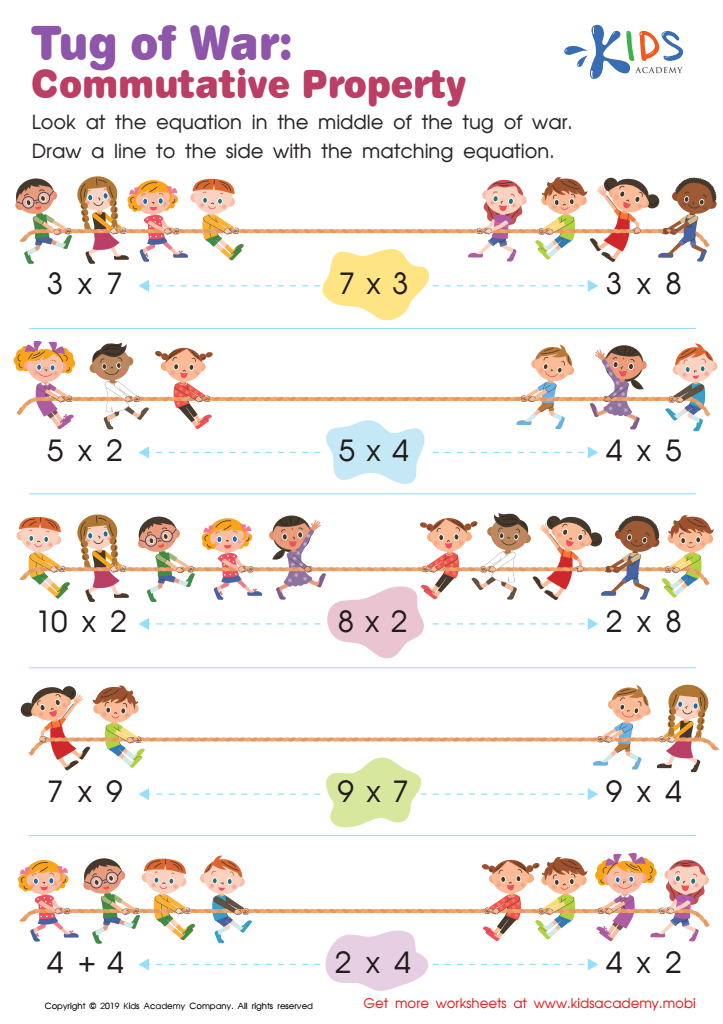Easy Sorting Worksheets for Ages 6-8
3 filtered results
-
From - To
Discover our engaging Easy Sorting Worksheets designed for children aged 6-8! These fun and interactive resources help young learners develop essential sorting skills through various activities. Aligning with educational standards, our worksheets encourage students to categorize objects, understand relationships, and enhance critical thinking. With colorful illustrations and easy-to-follow instructions, these worksheets are perfect for classroom use or at-home learning. From sorting shapes to organizing sizes, your child will have a blast while mastering important math concepts. Download and print our worksheets today to give your child a head start in organizing their world with confidence!


The Force of the 4's Worksheet


Tall or Short and Heavy or Light? Worksheet


Tug of War: Commutative Property Worksheet
Easy Sorting for ages 6-8 is a vital educational tool that fosters essential skills in young learners. At this developmental stage, children are honing cognitive abilities, and sorting activities play a significant role in enhancing logical thinking and organization skills. When parents and teachers engage children in sorting tasks, they encourage them to categorize objects based on size, color, shape, or other attributes, promoting critical thinking and problem-solving.
Moreover, sorting helps strengthen fine motor skills as children manipulate various items, making it not just a cognitive challenge but a physical one as well. This type of play-based learning can also enhance language skills as children learn to describe their sorting criteria, enriching their vocabulary and communication abilities.
Additionally, Easy Sorting promotes social skills when done in groups, fostering collaboration, negotiation, and sharing. It provides an excellent opportunity for parents and teachers to interact with children, giving insights into their thought processes and learning styles.
By incorporating Easy Sorting into educational activities, adults can lay a strong foundation for organizational skills, critical thinking, and effective communication—key competencies that will benefit children throughout their academic journey and personal lives. Embracing such strategies is essential for holistic development in early education.
 Assign to My Students
Assign to My Students






















